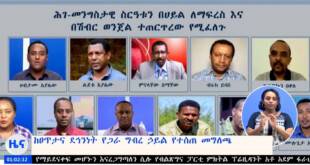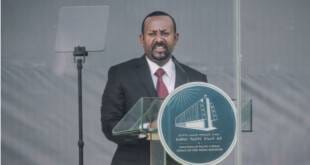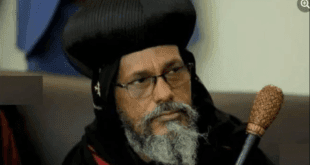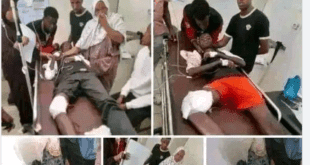By Aaron Maasho
ADDIS ABABA (Reuters) – Ethiopia continues to crack down on demonstrators in its vast Oromiya region some four months after protests began over plans to develop an economic zone on what is now farmland around the capital, Human Rights Watch said on Monday.
Although the government dropped the scheme last month, sporadic demonstrations have continued throughout the region, which is the Horn of Africa country’s largest in size and population.
“Security forces, including military personnel, have fatally shot scores of demonstrators. Thousands of people have been arrested and remain in detention without charge,” Human Rights Watch said in a report.
“While the frequency of protests appears to have decreased in the last few weeks, the crackdown continues,” it added.
Government spokespeople were not immediately available for comment.
The plan to create a special zone with new infrastructure around Addis Ababa had sparked some of the worst civil unrest in a decade in the nation of more than 90 million people. Protesters say the scheme would displace many Oromo farmers.
The government is yet to give a death toll, but some opposition figures said in December about 90 people had been killed. U.S.-based dissidents said the toll was more than 200.
The government has blamed the violence on armed gangs, while opponents have blamed heavy-handed police tactics.
Ethiopia’s 25-year development plan, aimed at attracting investment to help industrialise its agrarian economy, first sparked some small protests in 2014. But when it emerged in mid-November last year that land was to be leased near Ginchi, a town in Oromiya, bigger protests erupted.
Human Rights Watch said protesters it spoke to who had been detained after the outbreak of demonstrations had been subjected to severe beatings and never appeared before a judge.
Women suffered sexual assault and mistreatment, it said, while one 18-year old student was “given electric shocks to his feet”.
Some schools and universities have remained closed with teachers arrested in a bid to prevent more protests, Human Rights Watch said.
“The Ethiopian government should end the excessive use of force by the security forces, free everyone detained arbitrarily, and conduct an independent investigation into killings and other security force abuses,” it added.
(Reporting by Aaron Maasho; Editing by Drazen Jorgic and Catherine Evans)




